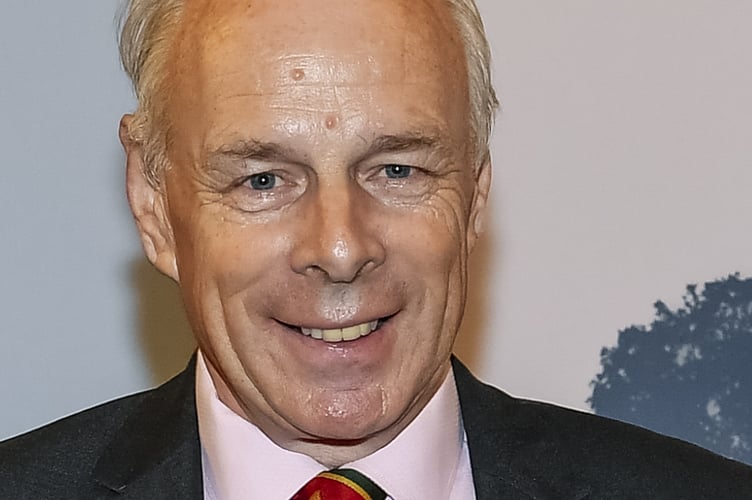A BROADBAND broadside was fired this week by MP Ian Liddell-Grainger, who said the Government was still failing to appreciate the problems of delivering high-speed internet to rural communities.
Mr Liddell-Grainger said the Westcountry was lagging ‘light years’ behind other parts of the country because of the failings of a Somerset Council-led consortium.
He welcomed a Westminster Hall debate earlier in the week which highlighted the problems still besetting rural connectivity.

Figures produced by the Country Land and Business Association (CLA) showed workers in the rural economy were at least 19 per cent less productive than the national average.
If the productivity gap was closed, the country’s economy could grow by as much as £43 billion.
Officials have recognised the digital economy was vital to unlocking the vast potential of rural businesses and bringing the rural economy into the 21st century.
But only 83 per cent of rural areas in the UK have access to superfast broadband compared to 98 per cent of urban areas, while 403,000 properties do not have access to ‘decent’ broadband, defined as speeds of at least 10Mbps.
Mr Liddell-Grainger represents West Somerset and will be the Conservative candidate for the new Tiverton and Minehead constituency taking in much of the area around Wellington and the Culm Valley.
He said progress in bringing rural areas up to higher broadband standards was understandably slow because of the difficult terrain with which engineers often had to cope.
Mr Liddell-Grainger said: “But in this part of the world we have an additional obstacle and that is Connecting Devon and Somerset (CDS), the council-run consortium that was supposed to be overseeing the delivery of broadband to the remoter areas of both counties.
“It has been a disaster from day one.
“We have heard promise after promise about the provision of better services yet we are still lagging light years behind better-served parts of the country thanks to a succession of failed contracts.
“As the figures show, this is putting rural businesses at a clear, chronic disadvantage.
“The pitiful performance of CDS is not only a scandal, it suggests to me that it is corroded by staggering levels of incompetence.
“Nobody can have confidence in it any more and the Government must now acknowledge that it has been a monumental failure which has acted like a sheet anchor on efforts to stimulate the rural economy.”
CDS said it was ‘proud to be the largest publicly-subsidised rural broadband programme in England’.
It said it had already delivered superfast broadband access to more than 315,000 homes and businesses in our region, which was more than any other broadband programme in England to date, and one of the most cost-effective programmes in England with costs per premise in the lowest quartile nationally.
However, Wellington town Cllr John Thorne, who as a Somerset county councillor called in 2018 for the CDS board to be sacked and replaced, said the consortium’s performance claim was ‘disingenuous’.
Cllr Thorne said: “Most of what CDS claims it has achieved is ancient history which they repeat every time they give what they call a ‘progress report’.
“They may have connected a significant number of properties to superfast broadband nearly 10 years ago, but they have done very little since, and most of those properties were in Devon and not in Somerset.
“That is why local residents refer to CDS as standing for ‘Connecting Devon not Somerset’.
“I hope the Government and our other local MPs now listen to what Mr Liddell-Grainger is saying and step in to take over this abysmally failing consortium.”
A CDS spokesperson said: "Ofcom's latest report shows that superfast coverage in Mr Liddell-Grainger's constituency is almost 93 per cent.
"In the more rural West Somerset areas of his constituency, CDS has delivered 91 per cent of the available coverage, far in excess of the 33 per cent central Government expected local government programmes to deliver.
"Openreach and Airband are currently working on behalf of CDS to expand the network and provide access to several thousand more hard-to-reach premises in the area."



